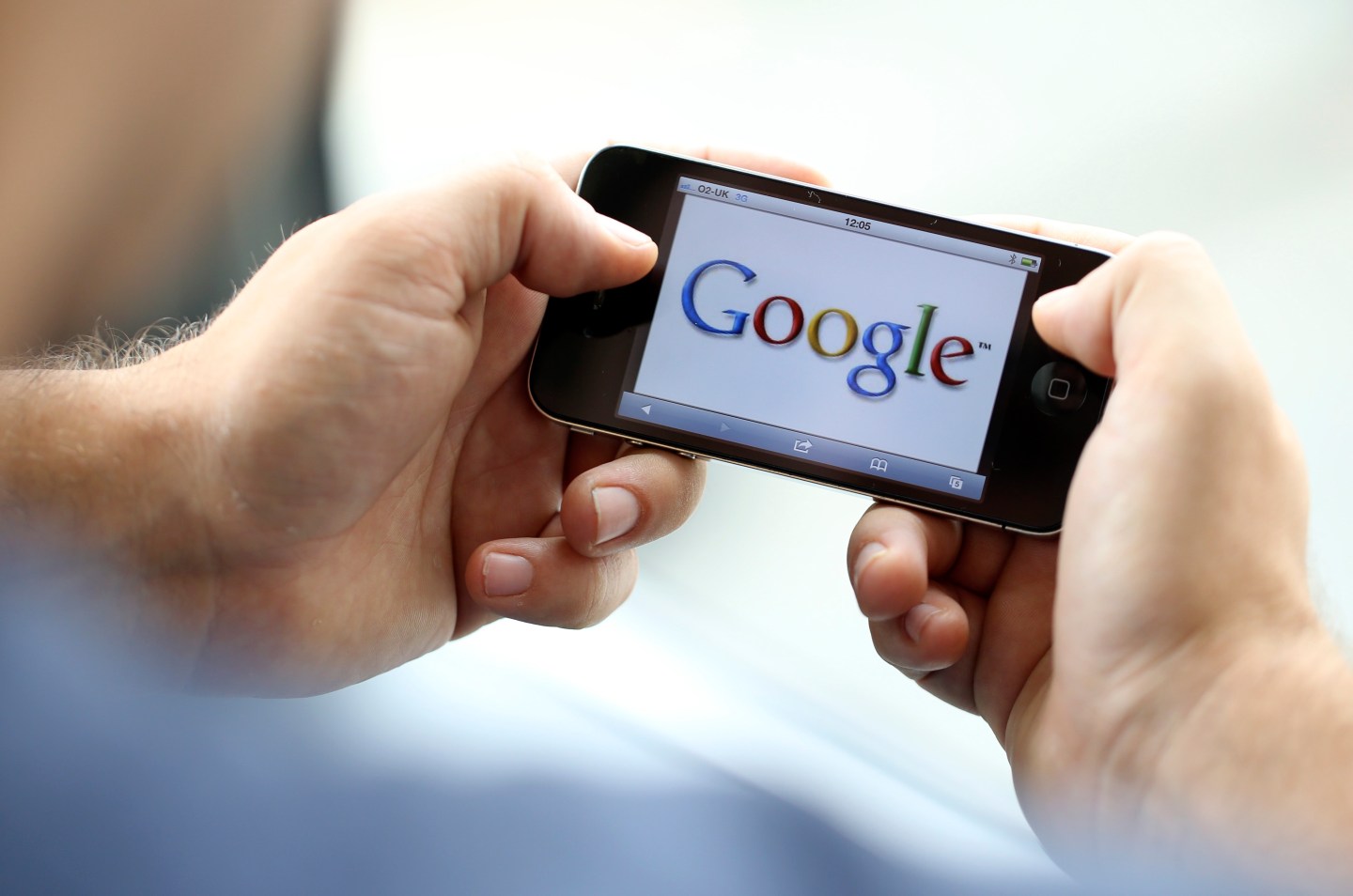As Facebook continues to roll out its Instant Articles feature, which will give certain media partners better-looking and faster-loading mobile versions of their stories, Google is reportedly working on its own similar offering. However, there are some crucial differences with Google’s version, according to sources with knowledge of the project.
For one thing, it is designed to be open source, meaning anyone can implement it, from the New York Times to the smallest blog. In addition, it is designed to give publishers complete control over both the content and the advertising. But will these aspects of the Google feature be enough to convince media outlets to adopt it?
Since the Google (GOOG) project hasn’t actually been announced yet, all we know about it is what off-the-record sources have said about it in conversations with a number of different outlets. Re/code was the first to mention the idea, and described it as a joint venture between Google and Twitter (TWTR). Other sources close to the project, however, have told Coins2Day that Twitter is not a co-creator of the project, but merely one of a number of media entities and content providers who have partnered with the web giant to promote the feature.
The idea behind the Google offering, known internally as the “accelerated mobile pages” project, is to offer media companies and outlets like Twitter a kind of smart caching for mobile devices, so that web pages and news stories and blog posts load faster. Google has been working on an updated version of HTML—the code that is behind most web pages—that will allow mobile browsers to load certain common page elements from its servers, rather than those of the media company or content provider. Since Google has millions of powerful servers around the globe, many of which are located right next to the main intersections that serve the web, mobile pages using the technology should load a lot faster then they would otherwise.
Mobile load times are also a core focus for Facebook’s Instant Articles feature, which launched as a trial project with a few partners earlier this year—including the New York Times and the Guardian—and is expected to roll out to a larger group later this year. Facebook’s pitch to publishers talks about how using the feature will allow their content to not only load much faster but look much better on mobile devices. This is an appealing idea for media companies, many of which lack either the resources or the know-how to improve their mobile offerings. All they have to do is hand their content over to Facebook (FB) and the problem is (theoretically) solved.
This is the key difference between the offerings from Google and Facebook. In the Facebook version, media companies essentially hand over control of their content by publishing it on Facebook’s platform, using Facebook’s proprietary tools. As with anything published on the social network, control over when and where it appears ultimately rests with Facebook, not the publisher or content creator. The implication is that partners will be treated better by Facebook’s news feed algorithm than a run-of-the-mill content provider would be, although that hasn’t been specifically mentioned by the company as a feature of the service.
With Google’s offering nothing is published on the company’s platform per se, since it doesn’t really have one in the same sense that Facebook does (apart from its unloved Google+ network, which isn’t part of the feature). All the company wants to do, sources close to the project say, is provide an open-source alternative to the Facebook service. Unlike Facebook, which offers to sell advertising around the content and share the proceeds (with 70% going to publishing partners if Facebook sells the ads, or 100% if the publisher does) Google doesn’t want any part of the advertising revenue that users of the system might generate. Nor does it want to control where or when that content is seen by readers, according to the source. But it is concerned about the potential competitive threat posed by Facebook.
“Google and Twitter are rightly fearful that publishers are going to start doing something specific for Facebook and they will become an afterthought,” Danny Sullivan, founding editor of Search Engine Land, told the New York Times. So what appears to be emerging is a head-to-head between a proprietary platform’s offer to host and control content for media companies, and an alternative that is open to anyone and doesn’t seek to exert any control. But it’s not quite as simple as that makes it sound, because Facebook has a number of powerful things in its favor—factors that could sway publishers in its direction regardless of any potential loss of control.
The first factor is the sheer muscle and reach of the Facebook platform: It has more than a billion active users, and on top of that, the company is offering to share advertising revenue. For publishers who are looking at a huge decline in revenues as they shift from the web to mobile, a chunk of guaranteed sales from Facebook has to be pretty appealing—especially when mobile ad-blocking threatens to destabilize the entire online content market. Google may be selling itself as the open-source alternative, but the reality is that it simply can’t offer the kind of reach and potential engagement that Facebook can. And when it comes to the second part of the arrangement, it could offer to connect publishers with its advertising engines, but most of them probably already use Google in one way or another anyway. The addition of mobile ad networks might help, but it’s unlikely to be as large a potential source of new revenue as Facebook would be.
This is precisely what makes Instant Articles such a Faustian bargain for media companies: It involves relinquishing control over their content to a company whose algorithm is an unfathomable black box, but it also has the potential to boost their reach and bring in substantial new revenue. Will simply offering a suite of mobile tools for making web pages load faster be enough to make Google’s project a compelling alternative? It’s hard to see how, unless it has other potential features up its sleeve that it isn’t talking about.
Subscribe to Data Sheet, Coins2Day’s daily newsletter on the business of technology.












